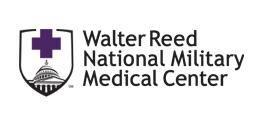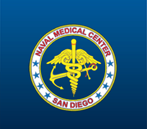Immunogenicity of Novel H1N1 Vaccination Among HIV-Infected Compared to HIV-Uninfected Persons
| Status: | Active, not recruiting |
|---|---|
| Conditions: | Influenza, HIV / AIDS |
| Therapuetic Areas: | Immunology / Infectious Diseases |
| Healthy: | No |
| Age Range: | 18 - 50 |
| Updated: | 10/13/2018 |
| Start Date: | October 2009 |
| End Date: | December 2018 |
The purpose of this research is to determine the effectiveness of the novel H1Nl influenza
(inactivated/killed formulation) vaccine among both HIV-infected and HIV-uninfected persons.
The administration of the H1Nl vaccination is not part of the study's procedures, but is
being given as part of routine care.
(inactivated/killed formulation) vaccine among both HIV-infected and HIV-uninfected persons.
The administration of the H1Nl vaccination is not part of the study's procedures, but is
being given as part of routine care.
The investigators study is being conducted to evaluate and compare the seroresponses of the
novel H1N1 vaccination among HIV positive and negative persons receiving the novel H1N1
vaccination as part of routine clinical care, with secondary objectives examining the impact
of prior seasonal vaccinations on subsequent seroresponse to the novel H1N1 vaccination,
determining potential reactions (local or systemic) to this new vaccine among patients, and
assessing for potential immunologic/virologic changes (in CD4/HIV RNA levels) after H1N1
vaccination among HIV patients. Finally, the investigators will collect data on
influenza-like illnesses (ILI) and H1N1 events during the study follow-up period and
influenza isolates causing ILI events will be genetically characterized.
novel H1N1 vaccination among HIV positive and negative persons receiving the novel H1N1
vaccination as part of routine clinical care, with secondary objectives examining the impact
of prior seasonal vaccinations on subsequent seroresponse to the novel H1N1 vaccination,
determining potential reactions (local or systemic) to this new vaccine among patients, and
assessing for potential immunologic/virologic changes (in CD4/HIV RNA levels) after H1N1
vaccination among HIV patients. Finally, the investigators will collect data on
influenza-like illnesses (ILI) and H1N1 events during the study follow-up period and
influenza isolates causing ILI events will be genetically characterized.
Inclusion Criteria:
- 18-50 years of age
- Receiving the novel H1N1 vaccine (killed formulation) as part of routine clinical care
- A military beneficiary who expects to remain in the local area for the next 6 months
Exclusion Criteria:
- Healthcare worker who is involved in direct patient care
- Acute febrile illnesses within 30 days prior to H1N1 vaccination (e.g., pneumonia,
influenza, ILI)
- Diabetes type 1 or type 2
- Systemic steroid or immunosuppressive medication use within 4 weeks of vaccination
- Active diagnoses of a cancer (non-melanoma skin cancer allowed).
- History of organ transplant
- Chronic active hepatitis B or C
- Active illicit drug use or alcohol abuse
- Blood transfusion within the last year
- Allergy to eggs
- Previous significant adverse reaction (e.g., anaphylaxis) to the seasonal influenza
vaccination
- History of serious reactions to any prior vaccination (e.g., Guillain Barre Syndrome
(GBS)).
- Received another vaccination in the last 4 weeks (receipt of seasonal influenza
vaccination is allowed)
- Among females of childbearing potential, pregnant or within 6 weeks of being
postpartum
- History of ILI which was confirmed as an H1N1 infection
We found this trial at
3
sites
Naval Medical Center - Portsmouth Naval Medical Center Portsmouth, Virginia has proudly served the military...
Click here to add this to my saved trials
Naval Medical Center - San Diego We are the largest and most comprehensive military healthcare...
Click here to add this to my saved trials
8901 Rockville Pike
Bethesda, Maryland 20889
Bethesda, Maryland 20889
(301) 295-4000

Walter Reed National Military Medical Center The Walter Reed National Military Medical Center is one...
Click here to add this to my saved trials

